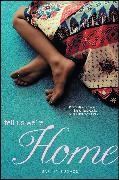Read more
Informationen zum Autor Marina Budhos is an author of award-winning fiction and nonfiction. Her novel Watched received an Asian/Pacific American Award for Literature YA Honor and a Walter Dean Myers Award Honor. Her other novels include Tell Us We're Home, a 2017 Essex County YA Pick; Ask Me No Questions, a recipient of the James Cook Teen Book Award; The Professor of Light; House of Waiting; and the nonfiction book Remix: Conversations with Immigrant Teenagers. With her husband Marc Aronson, she is the coauthor of Eyes of the World: Robert Capa, Gerda Taro, and the Invention of Modern Photojournalism and Sugar Changed the World: A Story of Magic, Spice, Slavery, Freedom, and Science, a 2010 Los Angeles Times Book Award Finalist. Budhos has been a Fulbright Scholar to India, received two Fellowships from the New Jersey Council on the Arts, and is a professor of English at William Paterson University. You can visit her online at MarinaBudhos.com. Klappentext Three immigrant girls from different parts of the world meet and become close friends in a small New Jersey town where their mothers have found domestic work! but their relationships are tested when one girl's mother is accused of stealing a precious heirloom. chapter 1 Meadowbrook, New Jersey, looks like it’s right out of an old-time postcard. It has a big town hall, with huge columns and a neat border of red tulips. There’s a quaint little Main Street, its wrought-iron lampposts twined with evergreen sprigs at Christmas; a big green park, where the kids trace ice-skating loops on the frozen pond. The town is nestled in a valley, and on one side is a steep incline that thrusts up into the ravine, where some of the expensive modern houses are perched like wood and glass boxes. On the other side the larger homes slowly give way to two-family houses and apartments on gritty Haley Avenue and to the big box stores of Route 12. More and more, shiny new condos have sprung up in the open gaps of land, a grove of pale brick McMansions standing where an old horse stable used to be. Halfway up the hill, in the old section of town, is Mrs. Abigail Harmon’s house. It isn’t much of a house, as far as Meadowbrook houses go. More it’s a cottage, with a steep gabled roof and low exposed beams. The garden is a froth of eccentric tastes: pinwheels and tangled raspberry bushes, a crumbling slate wall and herb garden with chipped zigzagging paths. Mrs. Harmon inherited the place from her mother, who’d been born in the pink-wallpaper nursery, and whose grandfather once owned the hundred acres of farmland that makes up what is Meadowbrook today. Around the time Mrs. Harmon was born, her family’s apple orchard was sold off to build the train station. Nowadays, when the early train draws up, a stream of women, mostly from the Caribbean or Latin America, step down in their rubber-soled shoes, cradling their Dunkin’ Donuts coffees, and make their way to the pretty clapboard houses. A few minutes later, up and down the streets, comes a chiming of voices, good-byes, slammed doors, cars backing down driveways, mothers and fathers rushing across town with their briefcases and still-wet hair to catch the next train to the city. It was one of those not-quite-spring days, weak sun slanting through the drafty windows, and Mrs. Lal, the housekeeper at Mrs. Harmon’s place, was giving the vacuum one last firm push on the bedroom floor. Mrs. Lal stood tall at nearly six feet, black hair cropped short and stylish, showing her broad neck and shoulders. Mothers liked her because she gave them a tidy sense of everything in its place: children in bed by seven o’clock, no whining, no peas left behind on the plates. Downstairs, Mrs. Lal’s daughter, Jaya, was sitting at the big table in the kitchen. She was supposed to be memorizing the periodic table. Really she was trying to work up the nerve to tell her mother about...

